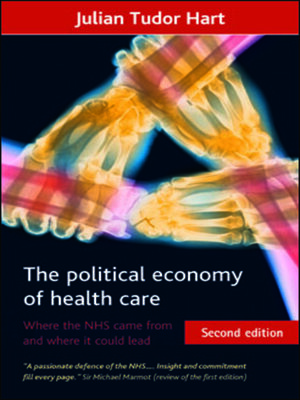The political economy of health care
ebook ∣ Where the NHS came from and where it could lead · Health and Society
By Julian Tudor Hart

Sign up to save your library
With an OverDrive account, you can save your favorite libraries for at-a-glance information about availability. Find out more about OverDrive accounts.
Find this title in Libby, the library reading app by OverDrive.



Search for a digital library with this title
Title found at these libraries:
| Library Name | Distance |
|---|---|
| Loading... |
With a foreword by Tony Benn.
Drawing on clinical experience dating from the birth of the NHS in 1948, Julian Tudor Hart, a politically active GP in a Welsh coal mining community, charts the progress of the NHS from its 19th century origins in workers' mutual aid societies, to its current forced return to the market. His starting point is a detailed analysis of how clinical decisions are made. He explores the changing social relationships in the NHS as a gift economy, how these may be affected by reducing care to commodity status, and the new directions they might take if the NHS resumed progress independently from the market.
This edition of this bestselling book has been entirely rewritten with two new chapters, and includes new material on resistance to that world-wide process. The essential principle in the book is that patients need to develop as active citizens and co-producers of health gain in a humanising society and the author's aim is to promote it wherever people recognise that pursuit of profit may be a brake on rational progress.







